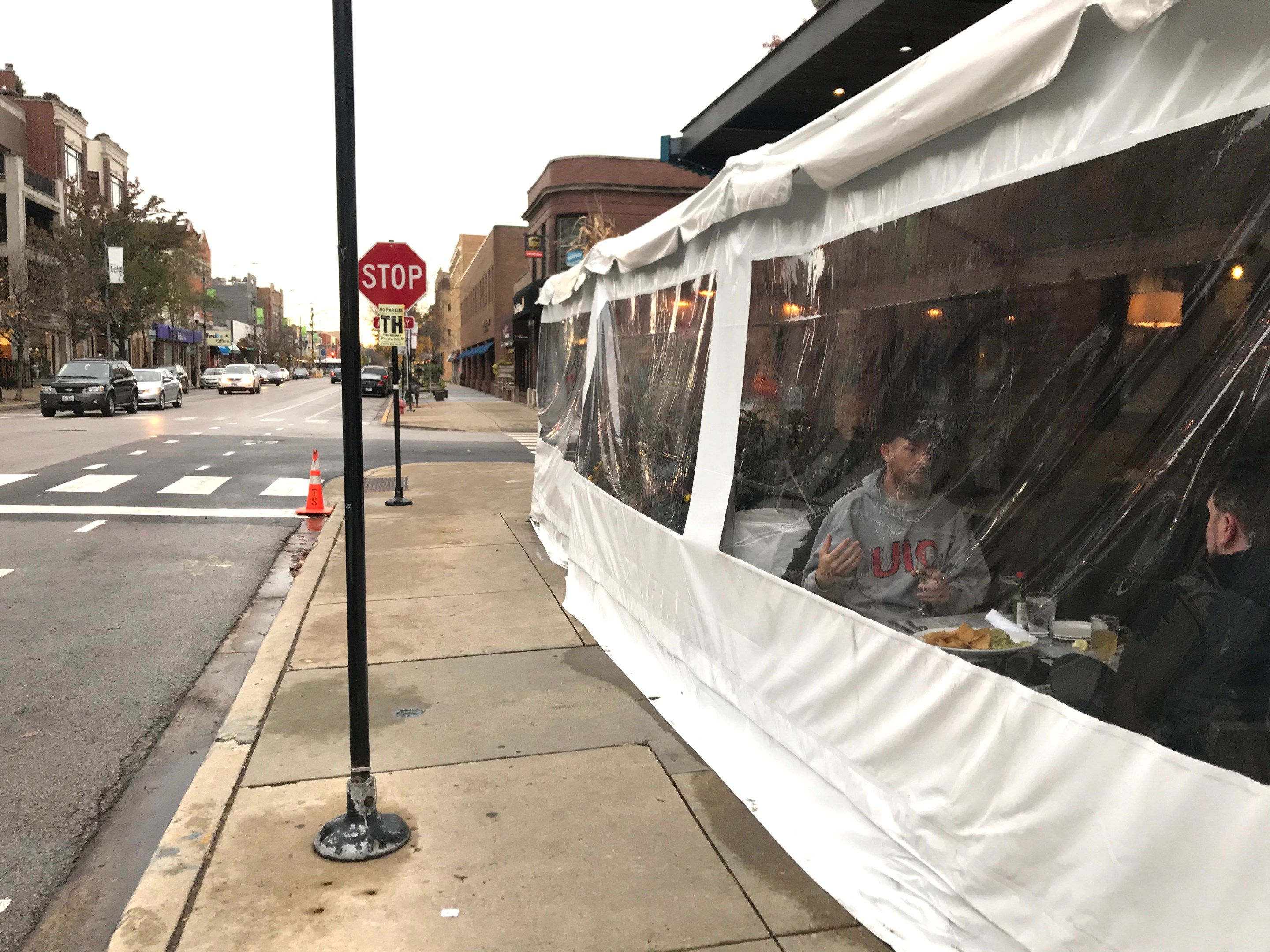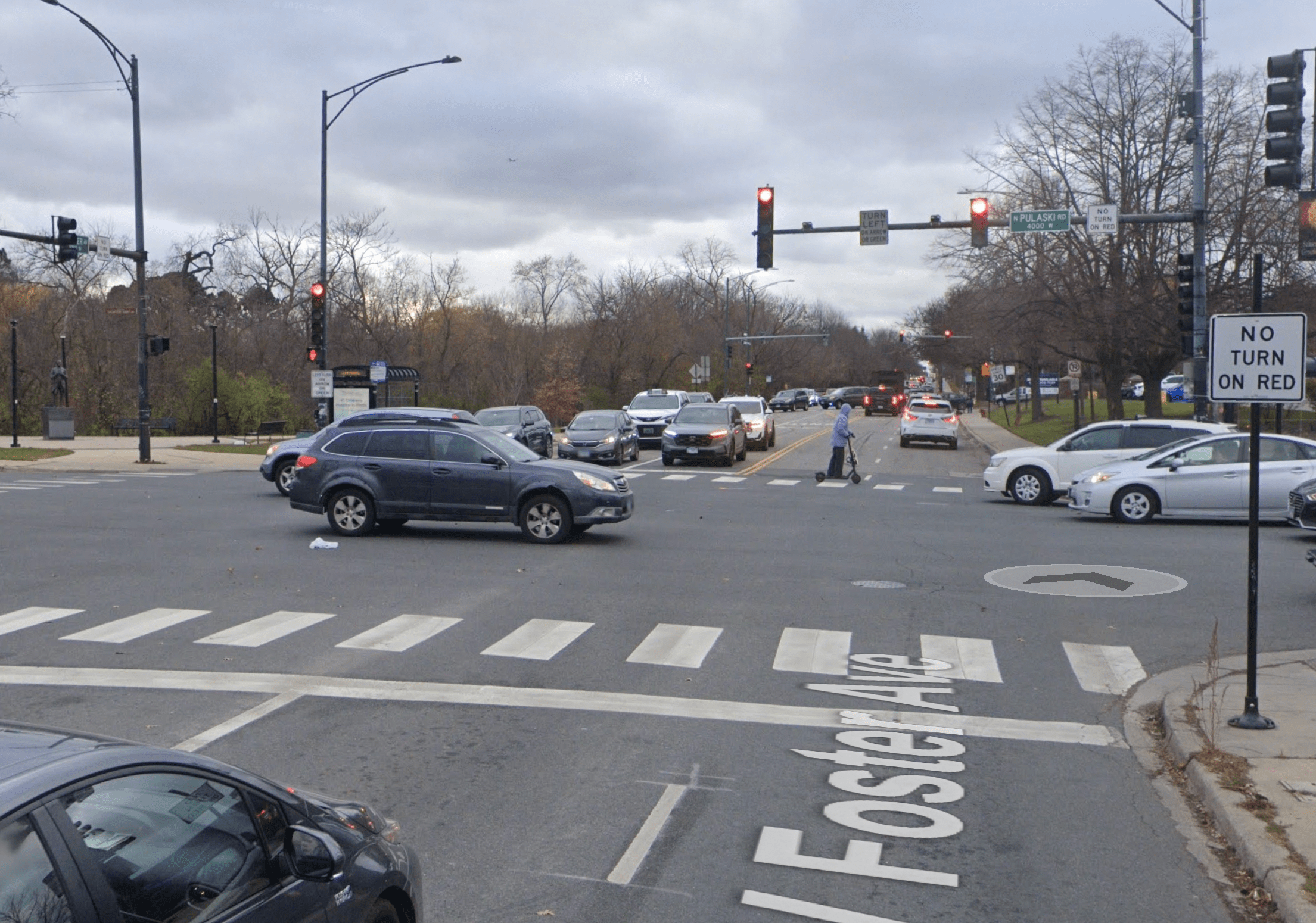Update 11/13/20, 10 AM: This week the Illinois Department of Public Health also issued voluntary guidelines urging residents to stay home and only leave for essential activities. Governor J.B. Pritzker warned that if the pandemic situation doesn't improve, there will once again be a mandatory Stay at Home order.
Running a city or state in the thick of a terrifying airborne respiratory is a difficult balancing act. How do you help keep your constituents safe from transmission without killing off vulnerable small businesses and contributing to economic devastation?
But even keeping that challenge in mind, Chicago mayor Lori Lightfoot's announcement today calling on residents to once again stay home except for essential trips and never host non-household members, while simultaneously noting that they're still free to make completely non-essential trips to drink and dine in bars and restaurants, was a major head-scratcher.
One thing that is completely clear is that our city needs to be in all-hands-on deck emergency mode to prevent this second spike in COVID-19 cases from reaching catastrophic levels. Following this spring's crisis, when Illinois saw as many as 203 coronavirus deaths in a single day, our state enjoyed a lull in fatalities this summer as people spent more time outside, where the risk of transmission is lower, with few days breaking 40 deaths. But as the weather has cooled this fall and people have been gathering indoors more often, cases have been steadily increasing, with a new recent high of 147 fatalities yesterday.
At a press conference today, Lightfoot announced a citywide strategy dubbed “Protect Chicago.” She warned that if we don't take decisive action to stop the spread, a thousand more residents will die of the disease within the next seven weeks.
"We're here with some very sobering news," Lightfoot said. "One month ago our daily average of cases had ballooned to 500 cases a day... We're now seeing an average of no less than 1,900 cases a day." She noted that the citywide test positivity average is now 14 percent, and in some parts of city it's a troubling 25 percent.
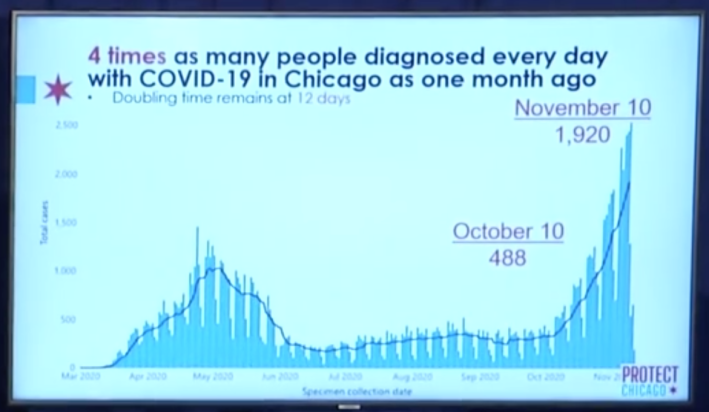
The centerpiece of Protect Chicago is a Stay-at-Home Advisory, which kicks in on Monday. Unlike this spring's Illinois Stay at Home order, it isn't legally binding, but residents are "strongly advised" to comply, according to the city. Among other commonsense things like wearing masks, hand hygiene, and social distancing, the advisory includes the following guidelines:
• "Only leave home to go to work or school, or for essential needs such as seeking medical care, going to the grocery store or pharmacy, picking up take-out food, or receiving deliveries."
• "Do not have gatherings in your home with anybody outside of your household... even with trusted family or friends."
• "Avoid all non-essential, out-of-state travel"; quarantining may be necessary after essential trips.
At the presser, Lightfoot and other city officials warned residents against celebrating Thanksgiving with non-household members, urging them to instead have online-only gatherings with other family members and friends.
In addition to the advisory, the city is also limiting all indoor and outdoor meetings and social events to 10 people, including weddings, birthday parties, business dinners and social events, and funerals. More info on the new rules is online at chicago.gov/reopening.
But that new rule doesn't override existing regulations allowing businesses like health club, stores, salons, and movie theaters to operate with limited capacity, typically, 40 percent or 50 people at most, whichever is fewer). And while the existing ban on indoor service at bars and restaurants, and the 11 p.m. service curfew, are still in effect, nothing else has changed at those venues.
In other words, the city is urging residents to stay home unless absolutely necessary, and never invite non-household members over. That means even a small, socially-distanced outdoor hang, which UIC infectious disease expert Dr. Richard Novak recently told me is a "definitely reasonable" way to spend time with non-household members during the crisis, is frowned upon.
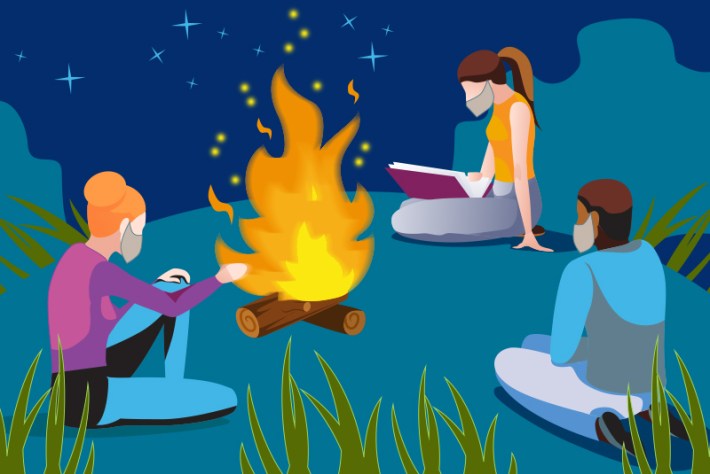
But if you want to go work out in a gym, get your beard trimmed or nails done, or go out to eat or drink with several non-household friends in a tent or dome outside a bar, many of which are poorly ventilated, there's absolutely nothing stopping you.
I wasn't the only person who was incredulous when Lightfoot explained the new guidelines and rules today. During the Q & A another reporter asked why, if everybody is supposed to be avoiding non-essential excursions, are any non-essential businesses allowed to stay open at all, let alone until late in the evening? Here's Lightfoot's response:
Great question. Part of the calculous and balancing that we have to do is not completely and utterly destroy our economy, not put even more workers out of work and on the unemployment rolls. We want to do what is necessary to have actual impact. As I said, we painted with a very broad brush at the beginning of this pandemic because we didn't know a lot. This was all new to each of us. We now have a sense, and we have a body of data, and we know where we really need to lean into certain kinds of interventions, and that's what we're doing.
Again, I'm sympathetic to the leadership challenge Lightfoot is facing here, of saving lives without killing commerce. And I'm not proposing that the city ban well-ventilated outdoor restaurant and bar service, which Dr. Novak said is "probably OK" as long as the tables are well separated.
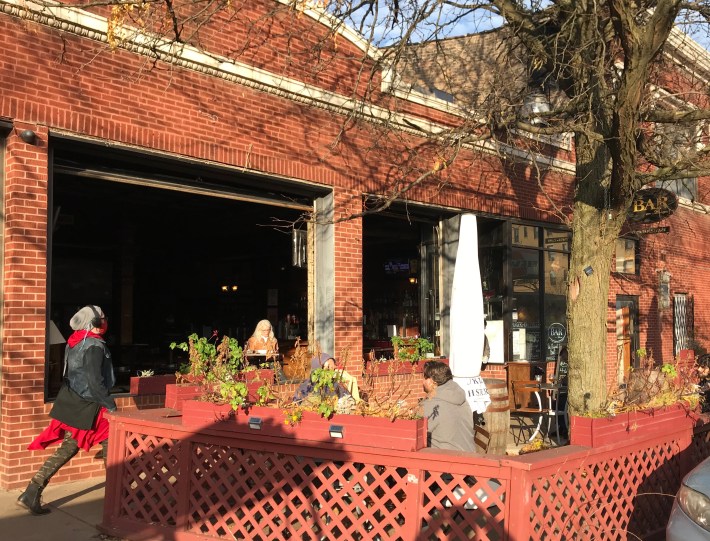
But Lightfoot's mixed message is counterproductive. If the city gives people contradictory advice and rules, because they are, people will tend to tune those warnings and make no changes to their behavior.
It would be much more useful for the Lightfoot administration to make a distinction between pandemic behaviors that are and aren't dangerous, which is largely determined by factors like whether an activity takes place inside or outside; what the airflow situation is like; the duration of the activity; how many people are involved; and whether people are wearing masks and social distancing. Here's a great explainer on how these variables affect transmission risk.
For example, it made sense for city officials to warn people against having typical large indoor holiday gatherings at their homes. But the language of the Stay at Home advisory should have provided some leeway for small, socially-distanced outdoor gatherings on porches or around fire pits, ideally with masks.
And instead of telling people to never leave the house for entertainment, while simultaneously providing the wink-wink, nudge-nudge permission of open bars and restaurants, the administration should take steps to make outdoor dining and drinking safer, and encourage safer practices by customers. For example, the Chicago Department of Business Affairs and Consumer Protection should better enforce the existing rule against completely enclosed tents shared by multiple tables of strangers (the tents are supposed to have 50 percent of their walls open.) Such non-compliant structures probably aren't much safer, and are possibly more dangerous, than brick-and-mortar indoor service, but are fairly common in Chicago nowadays.
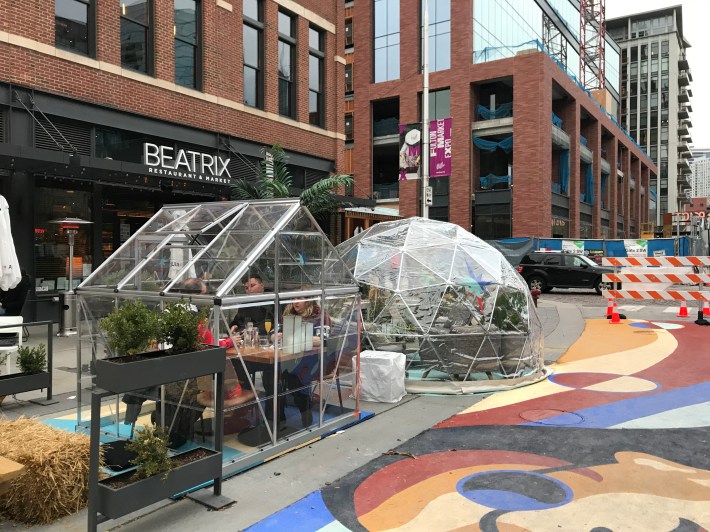
And customers should be advised that it's a bad idea to dine and drink with non-household members inside outdoor shelters for individual parties, such as the nifty little greenhouses and geodesic domes on Randolph Street and Fulton Market in the West Loop, unless there's good ventilation. "The more enclosed a space, the greater the risk," Dr. Novak warned. The city could also implement a rule prohibiting hospitality staff from entering these structures while patrons are present, which would keep everyone safer.
The bottom line is that there are plenty of things Lightfoot could be doing in terms of messaging and regulations that would be a lot more helpful than, in effect, saying, "Socializing at home with non-household members is reckless under any circumstances. But if you want to go out drinking in a non-ventilated enclosure, breathing the same air as a bunch of strangers until 11 p.m., you totally can."
